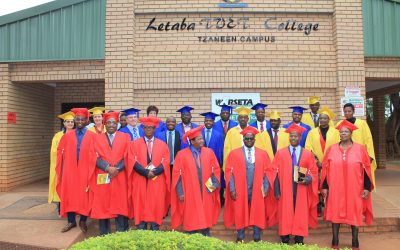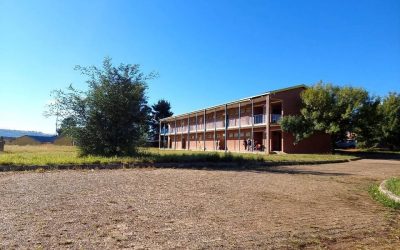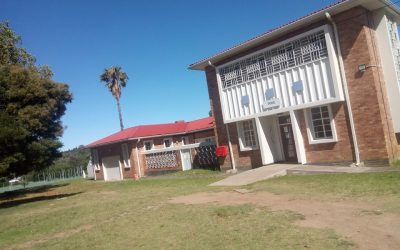Have you ever dreamed of wearing the badge and serving your community as a police officer in South Africa? It’s a career that demands courage, integrity, and a passion for justice. But before you can hit the road, you need to know what it takes to get there—starting with the right subjects and qualifications. In this blog post, we’ll walk you through the subjects needed to be a police officer in South Africa. But not just that but including the skills you’ll need to succeed, and the steps to start your career in law enforcement. It does not matter whether you’re still in high school or considering a career change, this post will help you navigate the path to becoming a police officer.
What Subjects Do You Need to Become a Police Officer in South Africa?
Let’s start with the basics. To join the South African Police Service (SAPS), you’ll need at least a Grade 12 certificate (Matric). While there’s no strict list of mandatory subjects, choosing the right ones in high school can give you a head start and prepare you for the challenges of the job.
READ: The Importance of Obtaining NSC Matric in South Africa
Now the following are the recommended subjects to study if you want to be a police officer in South Africa:
Languages (English and/or Afrikaans)
Communication is at the heart of policing. Whether you’re writing reports, interviewing witnesses, or calming a tense situation, being fluent in English and/or Afrikaans is crucial. These languages are widely used in South Africa, so mastering them will make your job easier.
Life Orientation
Don’t underestimate this subject. Life Orientation teaches you about personal development, community engagement, and ethical decision-making—all of which are essential for a career in law enforcement.
Mathematics or Mathematical Literacy
Though you don’t need to be a math wizard, basic numeracy skills are key. Crime statistics might need to be analyzed, budgets managed, and distances to be calculated when making investigations.
Physical Sciences or Natural Sciences
These are subjects that make you learn critical thinking and problem solving. And they offer a crash-course in forensic science, something you’ll find useful when working with crime scenes.
Life Sciences
Life Sciences gives you insight into human biology, which can be useful in situations involving medical emergencies or forensic investigations.
History or Social Sciences
Understanding societal dynamics, cultural diversity, and historical contexts is key to effective community policing. These subjects will help you connect with people from all walks of life.
READ: Courses that Don’t Require Maths in South Africa
What Happens After Matric?
Once you’ve completed your Matric, the next step is to apply to the SAPS. But if you’re serious about standing out, consider further education or training. Here are some options:
National Diploma in Policing
While other institutions have diploma programs that focus on policing, covering both practical training and theoretical knowledge of policing.
Degree in Criminology or Law
Further studies in criminology, law, or related disciplines can provide a more in-depth understanding of criminal behavior, criminal law, and crime prevention methods. It’s a fantastic way to improve your job prospects.
SAPS Training Academy
If you meet the basic requirements, you can apply to join the SAPS and undergo training at one of their academies. This training covers everything from physical fitness and firearms handling to self-defense and legal procedures.
You can apply for your next SAPS Recruitment Programme Here.
SAPS training centres in South Africa
- SAPS Academy: Paarl
- SAPS Academy: Bishops Lavis
- SAPS Academy: Tshwane/Pretoria
- SAPS Academy: Phillipi
- SAPS Academy: Chatsworth
- SAPS Academy: Outdshoorn
- Tshwane Metro Police Department Academy
- Addo Police Academy
- DAM School of Policing
- SAPS Academy: Benoni
Skills Every Police Officer Needs
Beyond education, a good police officer needs a special combination of abilities and traits. What you’ll need to succeed in this challenging role is as follows:
Communication skills: It is crucial to have the ability to listen, empathize, and communicate effectively because you will be interacting with people from various kinds of backgrounds.
Physical fitness: Policing is a physically demanding job, so staying in shape is a must.
Problem-solving skills: You’ll face unexpected challenges every day, and quick thinking can make all the difference.
Integrity and ethics: As a police officer, you’ll be trusted to uphold the law and protect your community.
Emotional resilience: The job can be stressful, so you’ll need to stay calm under pressure.
Final Thoughts
Being a police officer is more than just a job—it’s a calling to serve your motherland. By focusing on the right subjects needed to be a police officer in South Africa, developing essential skills, and pursuing further education or training, you can build a strong foundation for a rewarding career in law enforcement.
If you’re passionate about making a difference and serving your community, start preparing today. Your journey to wearing the badge begins with the choices you make now.










